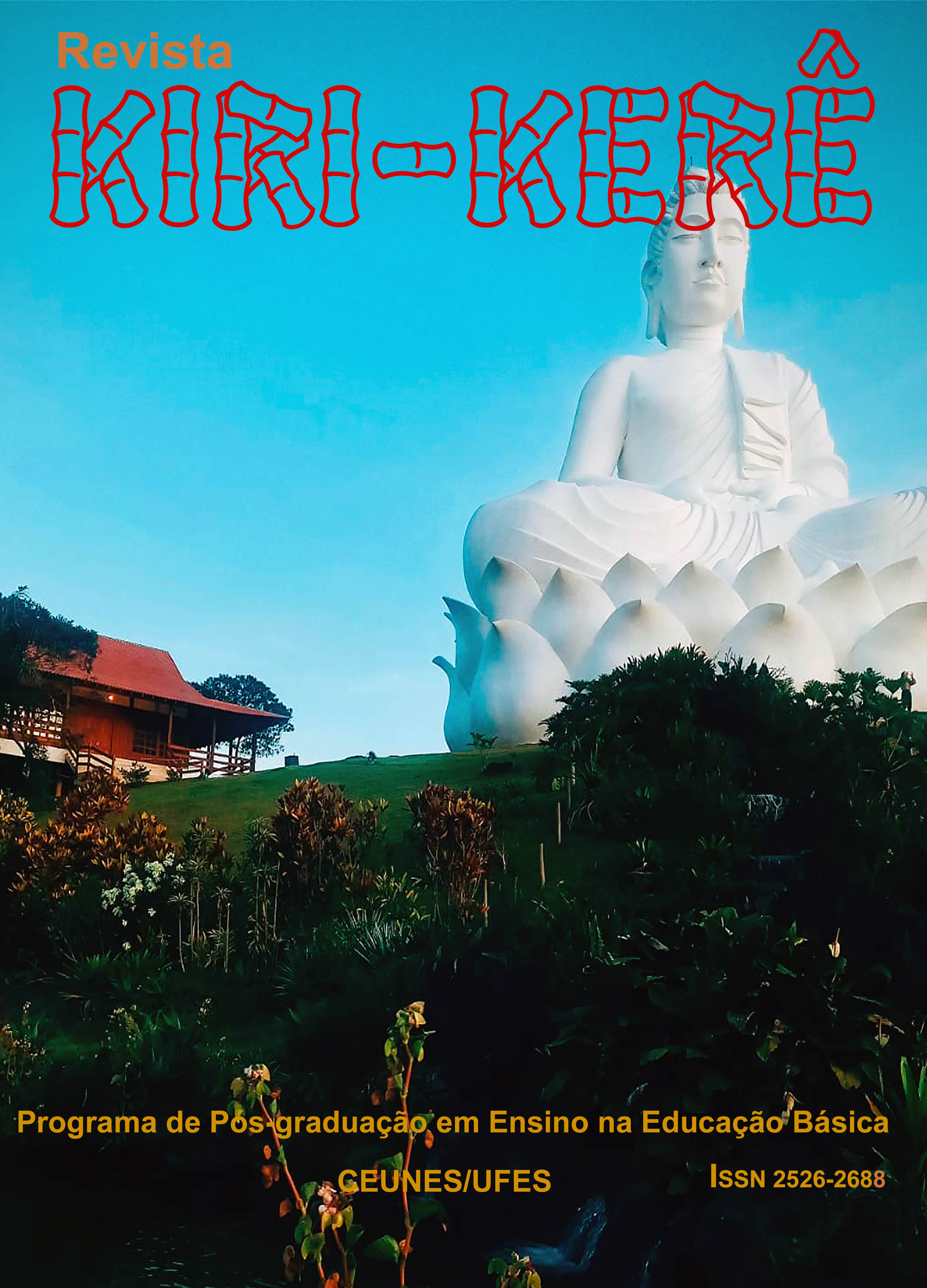Uso de videoaulas do Youtube como complementação ao ensino
DOI:
https://doi.org/10.47456/krkr.v1i16.39357Palavras-chave:
tecnologias digitais; ensino; videoaula.Resumo
A sociedade da informação é extremamente voltada para as tecnologias e interações e pelas diversas expressões da cultura que compõem a era digital. Considerando as plataformas existentes, o Youtube tem sido, nas últimas décadas, um ambiente propício à comunicação e aos conteúdos de teor instrucional ou educacional. Diante disso, este artigo objetiva analisar o uso do Youtube como plataforma digital de complementação ao ensino a partir do caso do canal Descomplica. Assim, pretende-se: realizar um levantamento das mídias utilizadas pelo Descomplica no ensino de conteúdo; caracterizar os dados observados em questão de laços fracos e fortes, multimodalidade/multimidialidade, capital social, tipos de redes, transmídia e crossmídia e relação dialógica; compreender vantagens e desvantagens desse tipo de plataforma. A metodologia é a análise de conteúdo, como técnica que permite descrever, registrar, analisar e comparar, em formato e conteúdo, as produções do canal audiovisual. Com os resultados, infere-se que a criação de conteúdo varia em volume de informações, na presença do professor e no visual das peças para cada meio, com um equilíbrio na linguagem, que busca manter certa autoridade na área educacional do perfil e, ao mesmo tempo, usa a coloquialidade e as referências cotidianas para cativar seu público de interesse.
Referências
AGUIAR, Adriana. Facebook: tudo sobre a rede social mais usada do mundo. Rock Content. 13 ago. 2016. Disponível em: rockcontent.com/br/blog/facebook/. Acesso em: 10 mai. 2022.
AGUIAR, Adriana.Instagram: saiba tudo sobre esta rede social. Rock Content. 17 ago. 2018. Disponível em: rockcontent.com/br/blog/instagram/. Acesso em: 10 mai. 2022.
ANASTASIOU, Léa das Graças Camargo; ALVES, Leonir Pessate. Processos de ensinagem na universidade. 5. ed. Joinville: Univille, 2009.
BARROS, Matheus. O Que é LinkedIn: Confira o Guia Completo Sobre a Plataforma. Olhar Digital. 02 mar. 2022. Disponível em: olhardigital.com.br/2022/03/02/internet-e-redes-sociais/o-que-e-linkedin/. Acesso em: 10 mai. 2022.
CASAROTTO, Camila. Descubra como fazer Marketing no Youtube e conseguir bons resultados. Rock Content. 05 jan. 2020. Disponível em: rockcontent.com/br/blog/marketing-no-youtube. Acesso em: 10 mai. 2022.
CASAROTTO, Camila. Guia do Pinterest: como usar um dos maiores mecanismos de busca visual do mundo. Rock Content. 22 jul. 2019. Disponível em: rockcontent.com/br/blog/pinterest. Acesso em: 10 mai. 2022.
GABRIEL, Martha. Você, eu e os robôs. 2. ed. São Paulo: Atlas, 2021.
GIL, Antonio Carlos. Métodos e técnicas de pesquisa social. 6. ed. São Paulo: Atlas, 2008.
GRILLETTI, Laís. Como o Descomplica fez do aprendizado contínuo uma estratégia de crescimento. Endeavor. 30 jul. 2018. Disponível em: endeavor.org.br/historia-de-empreendedores/como-o-descomplica-fez-do-aprendizado-continuo-uma-estrategia-de-crescimento/. Acesso em: 11 mar. 2022.
MORAN, José. Reinventando as formas de ensinar e de aprender. Educação Transformadora. São Paulo, 02 jun. 2021. Disponível em: moran10.blogspot.com/2021/06/reinventando-as-formas-de-ensinar-e-de.html. Acesso em: 05 abr. 2022.
LOUBACK, Ana Letícia. Facebook muda de nome e passa a se chamar 'Meta'. Techtudo. 28 out. 2021. Disponível em:techtudo.com.br/noticias/2021/10/facebook-muda-de-nome-e-passa-a-se-chamar-meta-entenda.html. Acesso em 10 mai. 2022.
MICHEL, Maria Helena. Metodologia e pesquisa científica em ciências sociais. 2ª ed. São Paulo: Atlas, 2009.
SIMÕES, Isabella de Araújo Garcia. A Sociedade em Rede e a Cibercultura: dialogando com o pensamento de Manuel Castells e Pierre Lévy na era das novas tecnologias de comunicação. Revista Eletrônica Temática, Ano V, n. 05, mai. 2009.
SOUZA, Ivan de. Afinal, qual é diferença entre site e blog? Rock Content. 22 jan. 2020. Disponível em: rockcontent.com/br/blog/diferenca-entre-site-e-blog. Acesso em: 10 mai. 2022.
STRUTZEL, Tércio. Presença digital. Rio de Janeiro: Alta Books, 2015.
RECUERO, Raquel. Redes sociais na Internet. Porto Alegre: Sulina, 2009.
ROESCH, Sylvia Maria Azevedo. Projetos de estágio e de pesquisa em administração. 2. ed. São Paulo: Atlas, 1999.
SILVA, João Pedro Ribas da; TREVISAN, Michele Kapp; GHISLENI, Taís Steffenello. Práticas publicitárias direcionadas ao meio educacional. In: PROPESQ LIGHT PLUS- ENCONTRO DE PESQUISADORES EM PUBLICIDADE E PROPAGANDA, 11., 2021, São Paulo. Anais ... São Paulo: USP, 2021.
SULZ, Paulino. O guia completo de Redes Sociais: saiba tudo sobre as plataformas de mídias sociais. Rock Content. 18 mar. 2020. Disponível em: rockcontent.com/br/blog/tudo-sobre-redes-sociais. Acesso em 10 mai. 2022.
Downloads
Publicado
Edição
Seção
Licença
Copyright (c) 2023 Graziela Frainer Knoll, Alice Melo Xavier, Taís Steffenello Ghisleni

Este trabalho está licenciado sob uma licença Creative Commons Attribution-NonCommercial 4.0 International License.
Os autores aceitam, quando do envio de seus trabalhos, a cessão dos direitos editoriais dos mesmos.









